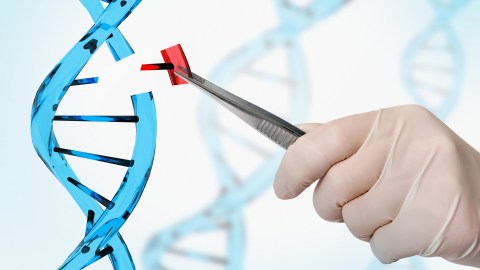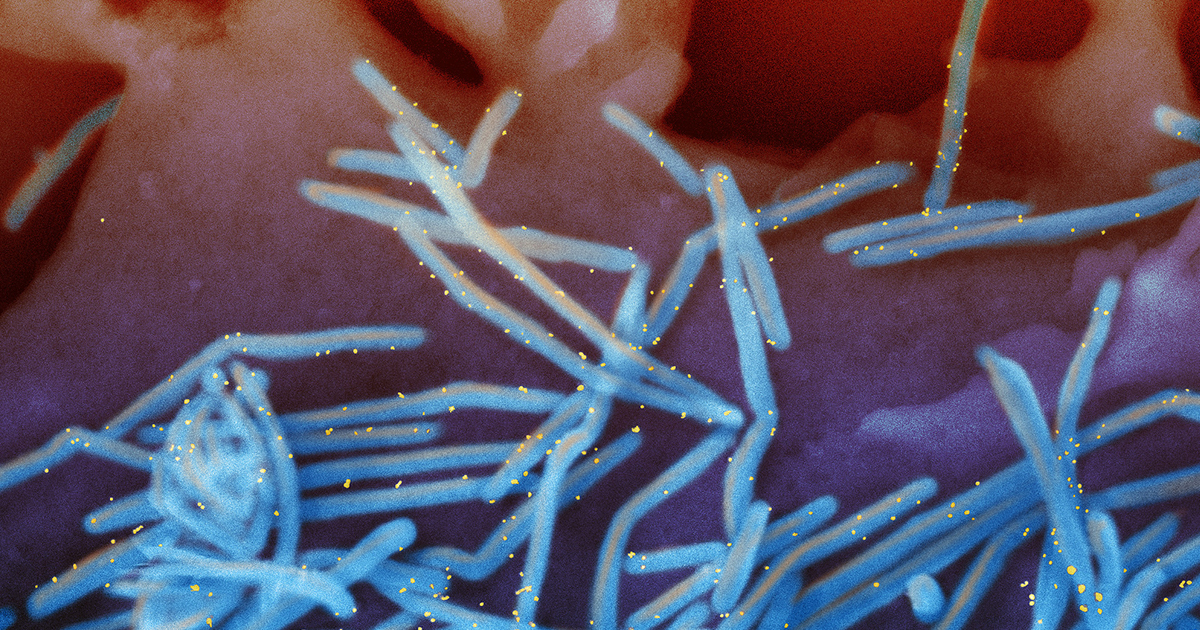5 biotech trends to watch in 2023

2022 saw some incredible scientific and technological breakthroughs, as well as some major medical breakthroughs — and 2023 is poised to follow up with more paradigm-shifting advances in the making. As the Deputy Director of Communications for Leaps by Bayer, I surveyed a brain trust of scientists, investors, and CEOs to learn which areas of biotech they are most eagerly watching this year. Here’s what they said.
Cell and gene therapies
Cell and gene therapies encompass a wide range of approaches that attempt to treat disease at the cellular and genetic level. With cell therapy, patients’ cells are extracted, reprogrammed, and then injected back into their bodies, often with the goal of leveraging their own immune system to fight diseases like cancer. Of the approved cell therapies in the U.S., most focus on blood cancers because they have not yet shown success in treating solid tumors. One of the next goals in cell therapy is to improve efficiency by reprogramming patients’ cells in vivo — that is, inside their own bodies.
In gene therapy, genetic material is delivered into patients’ bodies with the objective of replacing or correcting faulty DNA. Several gene therapies recently have been approved to treat a variety of disorders: a rare eye disease called Leber congenital amaurosis, spinal muscular atrophy in infants, and hemophilia B in adults. One limitation of current gene therapies is their delivery system. They are typically delivered to patients via a viral vector, a harmless virus that carries its genetic cargo into the body, but this approach typically only affects cells in the liver. Delivering precision genetic medicine to organs and cells beyond the liver represents one of the next frontiers in gene therapy. ReCode Therapeutics, a Leaps portfolio company, is on the forefront of that effort.
“The promise of changing the ability of a cell to alter the course of disease with a simple injection is very exciting and helped tremendously by efforts and success of the Covid-19 mRNA vaccines.”
Laura Shawver, CEO of Capstan Therapeutics
Synthetic biology
Synthetic biology involves the wholesale redesign or construction of biological entities to carry out desirable biotechnological processes. It’s already revolutionized the treatment of diabetes, for example. Since 1982, insulin has been produced by inserting a human gene into a common bacterium. Today, through companies like Ginkgo BioWorks, a Bayer partner, many more opportunities are arising to use synthetic biology in everything from medicine to farming to manufacturing.
“Synthetic biology applications in biotech are going to begin to take centerstage in 2023. From engineering soil bacteria for regenerative agriculture to bioproduction of key chemicals to replace sourcing from unsustainable farm practices to engineering human gut microbes for therapeutic purposes, there will be a wealth of breakthrough opportunities from synthetic biology innovations.”
Christopher Reyes, PhD, CEO & Founder of Bloom Science
Resilient and sustainable agriculture
As we grapple with a changing climate, the frequent occurrence of droughts and floods will pose a challenge to farmers. One way we can adapt is to tweak our crops to better withstand long-term environmental volatility. It is also critical that we keep up with the food demands of a growing population, which is set to reach almost ten billion people by 2050. Today, we already are facing a worsening global food insecurity crisis due to the war in Ukraine, which has been forced to severely limit its grain exports. We can hedge against future crises by making crops more nutrient dense and easier to grow.
“2023 will see the introduction of new crop traits that create tastier, healthier, and more sustainable food. Traits will be developed not just with CRISPR but by leveraging epigenetics to modify gene expression in ways that are cheaper and faster than ever before — all without changing the plant’s genetic code.”
Adam Litle, CEO of Sound Agriculture
Today, agriculture accounts for 25% of the world’s greenhouse gas emissions, in part due to farming’s reliance on nitrogen fertilizer. To be sure, chemical fertilizer has enabled billions of people to eat and live, and without it, the fabric of society would crumble. But moving forward, the ideal would be to achieve a new paradigm in which high-yielding crops are less reliant on fertilizer. New approaches currently in development encourage growth while also protecting the planet.
“I am excited about microbes and the role they will play in sustainably increasing the global food supply, reducing waste, and reducing dependence on chemically based fertilizers, pesticides, herbicides, and fungicides — and I’m even more excited about the role that microbes will play in directly addressing climate change and mitigating greenhouse gas emissions. The solution to many of the world’s biggest challenges can be found in nature — just waiting to be harvested!”
Steve Kahn, CEO of New Leaf
Xenotransplantation
Xenotransplantation is transplanting animal organs into humans. Researchers are concentrating on making pig hearts, lungs, and kidneys safe by genetically engineering their DNA to be accepted by human immune systems. Last year, the first such heart transplant took place, allowing a man with end-stage heart failure to live for an additional two months. The landmark surgery ignited hope that a future of widely available pig organs could be edging closer for the 100,000+ people in dire need of transplants in the U.S.
AI-enhanced precision medicine
As advances in machine learning (ML) and artificial intelligence (AI) rapidly leap forward, they are unlocking previously impossible opportunities in the life sciences, such as finding novel biological targets and designing better drugs. The confluence of tech and biotech holds the promise of faster, more personalized treatments for patients as well as for more resilient, nutritious foods.
“The last decade was the decade of data in biotech. High-throughput technologies were employed to gain better understanding of biology: new drug targets, new pathways, and new mechanisms were discovered. It seems that 2023 will mark the beginning of the era of design: using new technologies to engineer and design smarter molecules that will allow us to command the new biology that was discovered in the previous decade.”
Anat Binur, CEO & Co-founder, and Yanay Ofran, Chairman & Co-founder of Ukko
Kira Peikoff is the Deputy Director of Communications at Leaps by Bayer, a unit of Bayer AG that leads impact investments into solutions to some of today's biggest challenges in health and agriculture.





